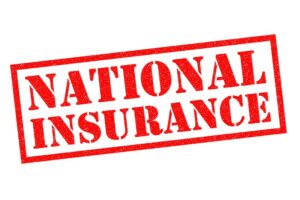
Do you need to file a tax return
There are a number of reasons why you might need to complete a Self-Assessment return. This includes if you are self-employed, a company director, have an annual income over £100,000 and / or have
+01235 250011

There are a number of reasons why you might need to complete a Self-Assessment return. This includes if you are self-employed, a company director, have an annual income over £100,000 and / or have

The Inheritance Tax residence nil rate band (RNRB) is a transferable allowance for married couples and civil partners (per person) when their main residence is passed down to a direct descendent such

The Scottish Parliament has approved a new 3% rent cap for most private renters that will come into effect from 1 April 2023 for an initial six-month period with the option to extend for another

The first monthly returns and payments affected by HMRC’s new VAT penalty regime were due by 7 March 2023. The new VAT penalty rules apply to the late submission and / or late payments of VAT returns

In some circumstances it can be beneficial to make voluntary National Insurance Contributions (NICs) to increase your entitlement to benefits, including the State or New State Pension.
Usually, HMRC

During recent disruptions to trade, ascribed to Brexit, COVID, the war in Ukraine or other global economic challenges, we have become used to online meetings and facetime calls to keep in touch with

It was confirmed as part of the Spring Budget announcements that the Social investment tax relief (SITR) scheme will end as planned on 5 April 2023. New investments made on or after 6 April 2023 will

As part of the Spring Budget measures, the Chancellor announced that the government will extend the temporary higher rates for Theatre Tax Relief (TTR), Orchestra Tax Relief (OTR) and Museums and

As part of the Budget measures the Chancellor confirmed that the duty rates on beers, spirits, wines and ciders will increase in line with the retail price index (RPI). These rates will increase from

One of the key measures of the Spring Budget was the announcement that the £40,000 cap on annual pension contributions will be increased by 50% to £60,000 from 6 April 2023. Tax relief for
Phone: 01235 250011 Fax: 01235 250022
28 The Quadrant, The Science Park, Barton Lane,
Abingdon, OX14 3YS
Oxonaccountancy © 2024
All Rights Reserved.


Subscribe to our mailing list and get interesting stuff and updates to your email inbox.
Thank you for subscribing.
Something went wrong.
We respect your privacy and take protecting it seriously